Feeding your baby is a journey filled with milestones, but it’s also a minefield of potential hazards. As your little one explores new tastes and textures, knowing which foods to avoid is just as important as knowing what to offer.
While babies’ tiny bodies are developing rapidly, their digestive systems aren’t ready for everything adults can handle. Let’s explore 20 foods that should stay off your baby’s menu until they’re older.
1. Honey

Honey harbors spores of Clostridium botulinum, bacteria that can produce a deadly toxin in a baby’s immature digestive system. While adults and older children have developed gut defenses against these spores, babies under 12 months haven’t.
Even a tiny taste can trigger infant botulism – a rare but potentially fatal illness causing constipation, weakness, and breathing difficulties. The scariest part? Honey lurks in unexpected places like graham crackers and cereals.
2. Cow’s Milk

Think milk is always nurturing? Not for babies under 12 months! Full-fat cow’s milk overwhelms tiny kidneys with minerals and proteins they simply can’t process yet. The resulting stress can cause microscopic intestinal bleeding, leading to iron-deficiency anemia.
Formula or breast milk delivers precisely what babies need – perfectly balanced nutrition tailored to developing systems. Cow’s milk lacks sufficient vitamin E, iron, and essential fatty acids crucial for rapid brain development.
3. Raw Or Undercooked Eggs

Slimy, undercooked egg whites aren’t just unappetizing—they’re bacterial playgrounds! Salmonella bacteria, which lurk in raw eggs, can send your baby’s developing immune system into crisis mode, causing violent diarrhea, fever, and dehydration that could require hospitalization.
Forget about licking the cookie dough spoon or sampling homemade mayonnaise. Even that sunny-side-up egg with its glistening, runny yolk poses too much risk for little ones.
4. Unpasteurized Cheese

Soft, unpasteurized cheeses like Brie, Camembert, and blue-veined varieties might be delicious on your charcuterie board, but they’re bacterial nightmares for babies. These creamy culprits can harbor Listeria monocytogenes, a pathogen that causes listeriosis—particularly dangerous for infants whose immune systems are still developing their defense playbook.
Symptoms start subtly: fever, muscle aches, and nausea that can be mistaken for common illnesses. But in babies, the infection can rapidly escalate to meningitis or blood infections.
5. Nuts And Nut Butters
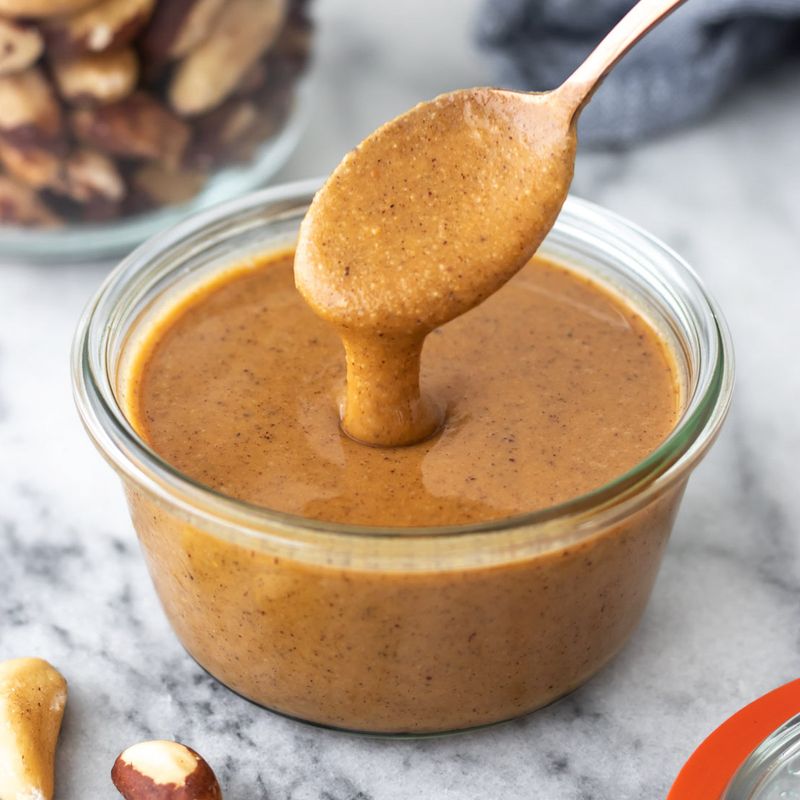
Whole nuts are choking hazards that make pediatricians break into cold sweats! Their small, hard shape perfectly blocks tiny airways, and babies lack the molars and chewing skills to break them down properly. Even a fragment can be aspirated into little lungs.
Beyond choking concerns, nuts rank among the top allergens. Recent research has flipped conventional wisdom, suggesting early introduction might actually prevent allergies—but only under medical supervision and never as whole nuts.
6. Raw Or Undercooked Meat
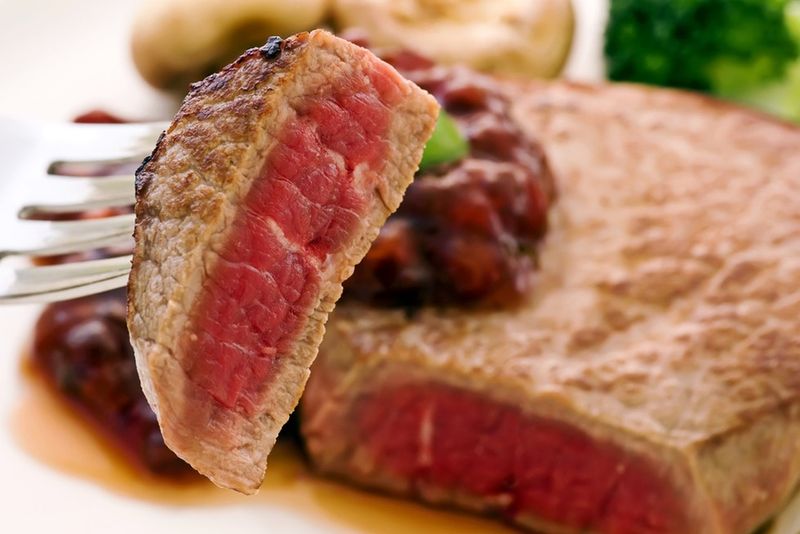
Raw meat harbors an invisible army of pathogens—E. coli, Salmonella, and Listeria—that can wreak havoc on your baby’s developing immune system. A single bacteria-laden bite could trigger violent vomiting, diarrhea, and dangerous dehydration within hours.
Forget those Instagram-worthy medium-rare steaks or pink-centered burgers. Babies need meat cooked until it reaches an internal temperature of 165°F—no exceptions. Even deli meats pose risks unless heated until steaming.
7. Salt
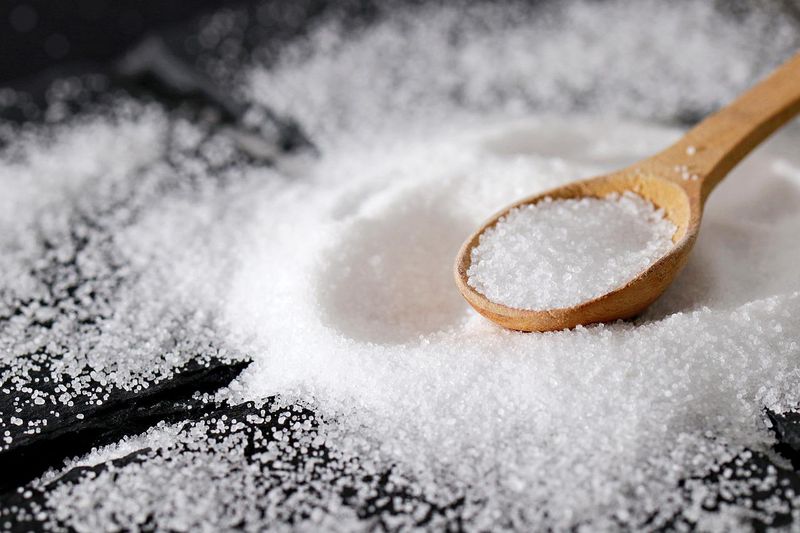
Your baby’s kidneys are like tiny, underpaid workers struggling to process excess sodium. While adults might sprinkle salt without thinking, babies’ immature organs simply can’t handle the load—potentially leading to kidney damage, severe dehydration, or even brain swelling in extreme cases.
Processed foods are salt minefields: a single serving of canned soup contains more sodium than a baby should consume in an entire day! Even “healthy” options like store-bought bread pack surprising amounts.
8. Sugar And Sweetened Foods

Sugar hits a baby’s developing brain like a pharmacological drug—creating genuine dependency patterns that can last a lifetime. Those innocent-looking flavored yogurts, fruit snacks, and juice boxes? They’re setting your child up for a lifetime of sugar cravings and potential metabolic issues.
Baby taste buds are extraordinarily sensitive, designed to appreciate subtle natural sweetness in breast milk and fruits. Bombarding them with concentrated sugars dulls this innate ability and creates artificial preferences.
9. Fruit Juice

Fruit juice is essentially liquid candy wearing a health halo. That innocent-looking sippy cup of apple juice packs more sugar than soda but without fiber to slow absorption—sending your baby’s blood sugar on a rollercoaster ride. The American Academy of Pediatrics now recommends zero juice before age 1.
Beyond sugar concerns, juice fills tiny tummies with empty calories, displacing nutrient-dense foods babies actually need. Those adorable juice boxes marketed specifically for babies? Nutritional sabotage in cute packaging.
10. Certain Fish Species

Mercury poisoning sounds like something from a medical thriller, but it’s a real risk when feeding certain fish to babies. Predatory species like shark, swordfish, king mackerel, and tilefish accumulate staggering mercury levels that can damage developing nervous systems and brains.
The effects aren’t immediately obvious—subtle cognitive impairments, delayed milestones, and attention problems may appear months or years later. Mercury exposure during the critical brain development window of infancy can have permanent consequences.
11. Raw Sprouts

Those crunchy alfalfa and bean sprouts might seem like health food superstars, but they’re bacterial breeding grounds that have triggered countless food poisoning outbreaks. The warm, humid conditions required for sprouting create perfect environments for E. coli, Salmonella, and Listeria to multiply explosively.
Even homegrown organic sprouts carry these risks—the bacteria often originate inside the seeds themselves where washing can’t reach. A baby’s developing immune system simply can’t handle these pathogen loads.
12. Hard, Round Foods
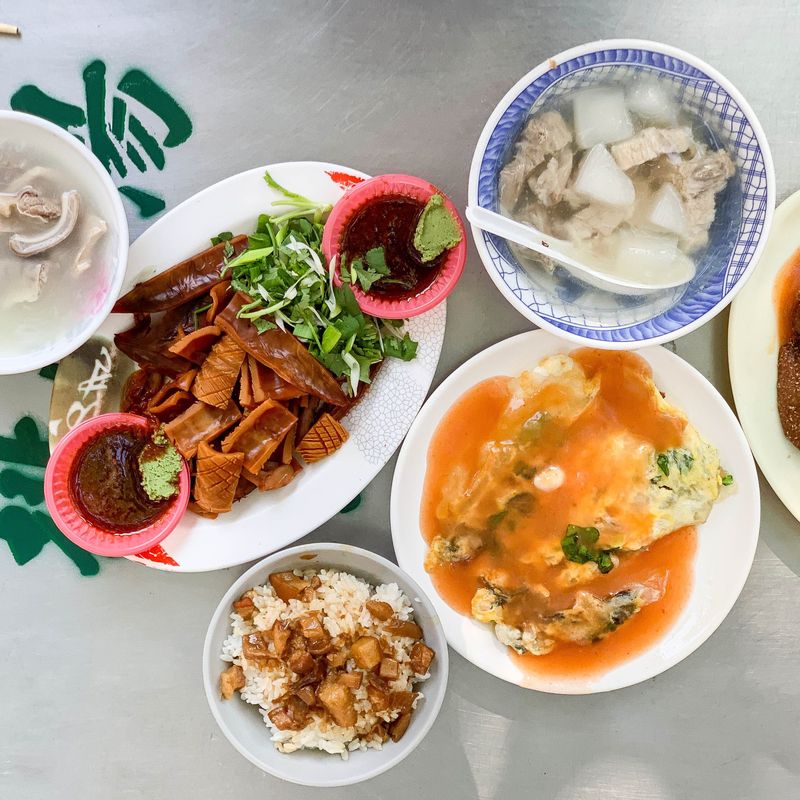
Grapes, cherry tomatoes, and blueberries share a deadly design flaw—they’re the perfect size and shape to completely block a baby’s airway. Their slippery, round surfaces create an airtight seal that even the Heimlich maneuver struggles to dislodge from tiny throats.
Hot dogs and cylindrical chunks of raw vegetables like carrots join this choking hazard hall of fame. The American Academy of Pediatrics identifies these foods among the most dangerous for children under four.
13. Popcorn

Popcorn kernels are stealth choking assassins—light enough to be sucked into airways with a single inhale and shaped perfectly to block breathing passages. The airy texture tricks parents into thinking they’re safe, while unpopped or partially popped kernels hide like land mines among the fluffy pieces.
Even fully popped corn poses serious dangers. Babies lack the sophisticated chewing mechanics needed to break down popcorn’s unique texture, and pieces can easily get lodged in their narrow airways.
14. Shellfish
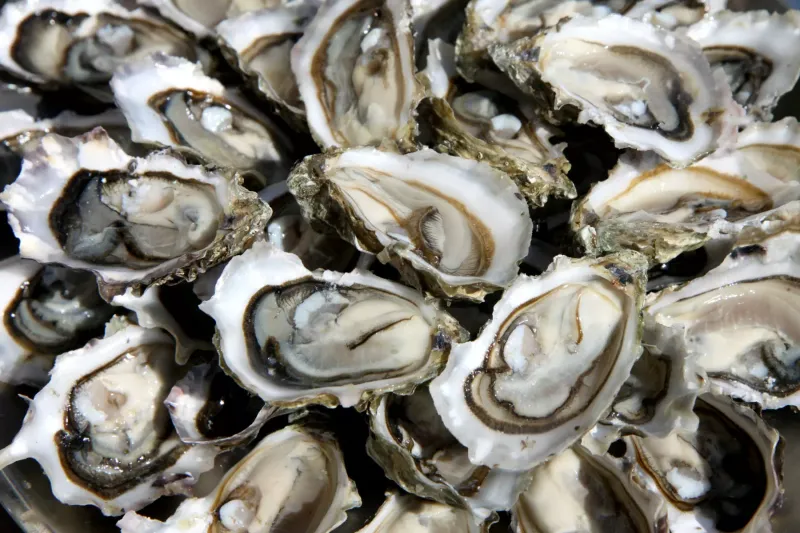
Shellfish carries a double threat for babies: severe allergic reactions and contamination risks. These underwater delicacies rank among the “Big Eight” food allergens, capable of triggering life-threatening anaphylaxis even on first exposure. A baby’s first taste of shrimp could turn into an emergency room visit within minutes.
Beyond allergy concerns, shellfish are notorious for concentrating environmental pollutants and naturally occurring toxins from their marine environments. Their filter-feeding nature makes them particularly vulnerable to contamination.
15. Caffeinated Beverages
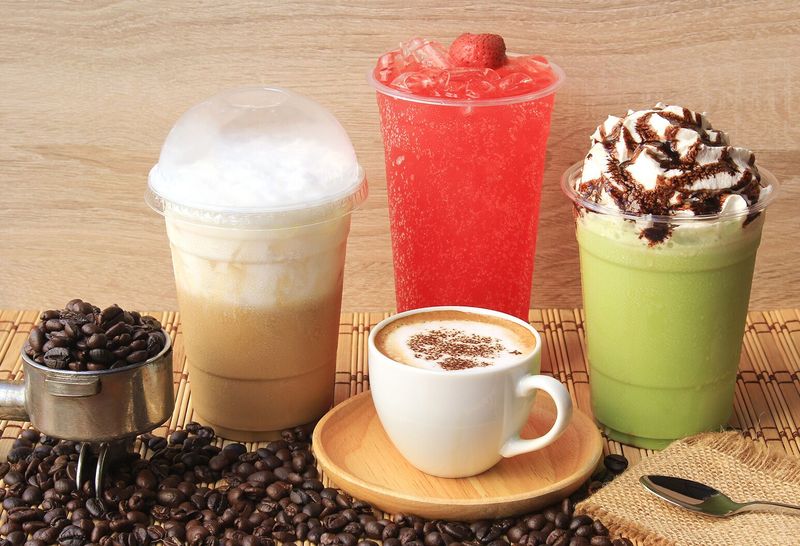
Coffee, tea, and soda might fuel your parenting marathon, but they’re metabolic nightmares for babies. A baby’s body takes 80-100 hours to process caffeine—compared to your 5-7 hours—meaning that innocent sip of cola can disrupt sleep patterns for days.
Caffeine also acts as a diuretic, potentially causing dangerous dehydration in infants whose fluid balance is already precarious. The stimulant effects hit babies’ developing nervous systems with exponentially more impact than adults, causing irritability, tremors, and irregular heartbeats.
16. Processed Meats
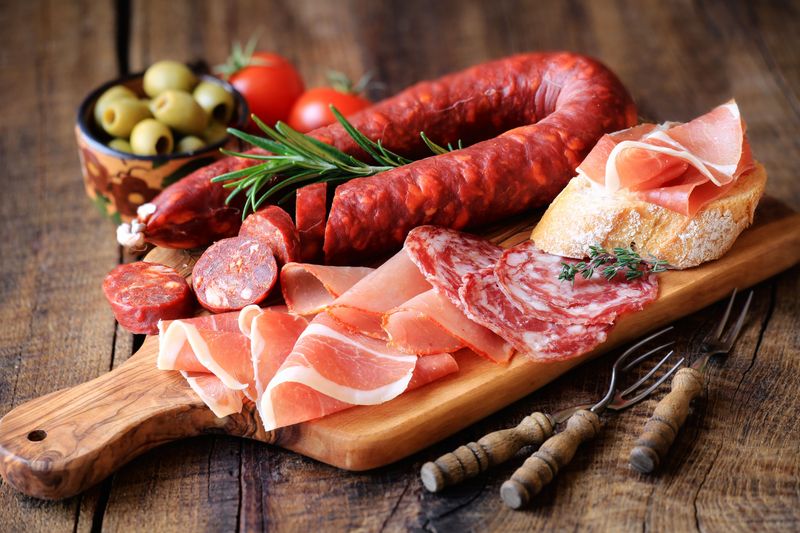
Hot dogs, bologna, and pepperoni might seem like convenient protein sources, but they’re sodium and nitrate bombs wrapped in choking hazards. A single slice of deli meat can contain more sodium than a baby should consume in an entire day, overwhelming developing kidneys and raising blood pressure.
The World Health Organization classifies processed meats as Group 1 carcinogens—the same category as cigarettes! The nitrates and nitrites used as preservatives can convert to harmful compounds in the digestive system, potentially damaging developing cells.
17. Raw Vegetables
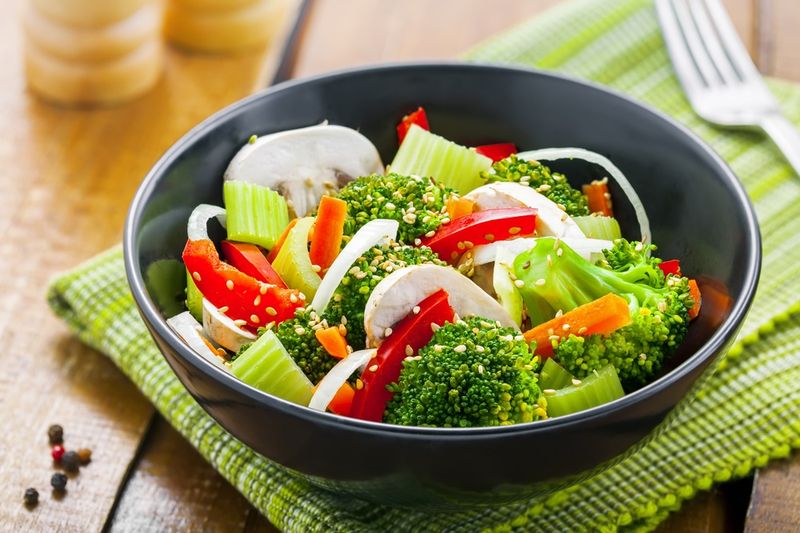
Raw carrots, celery, and bell peppers are nutritional powerhouses for adults but dangerous choking hazards for babies. Their firm texture requires advanced chewing skills that babies simply haven’t developed yet. Those adorable two front teeth aren’t designed for grinding—they’re for biting off pieces that need to be broken down further.
Even when cut into small pieces, raw vegetables maintain their firm texture. A baby might gum them briefly before swallowing chunks whole, creating serious choking risks.
18. Unpasteurized Juices
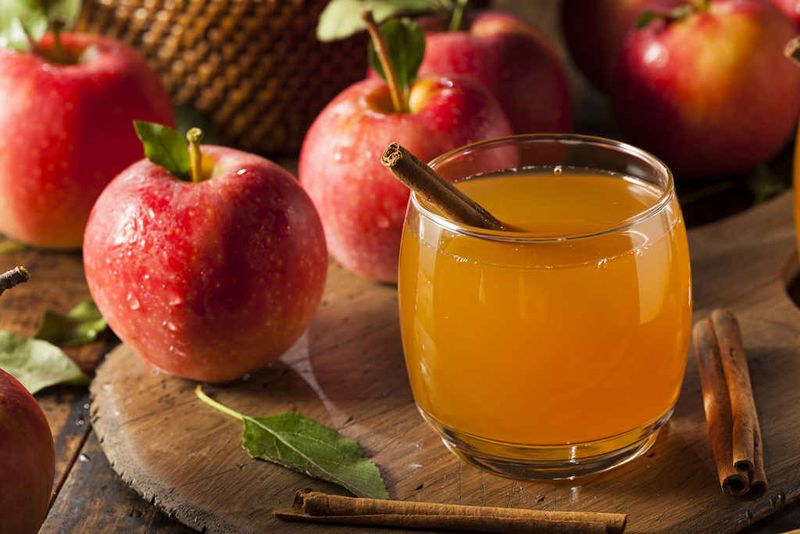
That artisanal apple cider from the farmers market might be delicious, but without pasteurization, it’s a bacterial playground that can devastate your baby’s developing immune system. Unpasteurized juices have been linked to serious E. coli, Salmonella, and Cryptosporidium outbreaks—infections that might give adults a few uncomfortable days but can hospitalize infants.
Fresh-squeezed orange juice at your breakfast table falls into this dangerous category too. Without heat treatment, harmful bacteria from the fruit’s surface can contaminate the juice.
19. Smoked Or Cured Meats
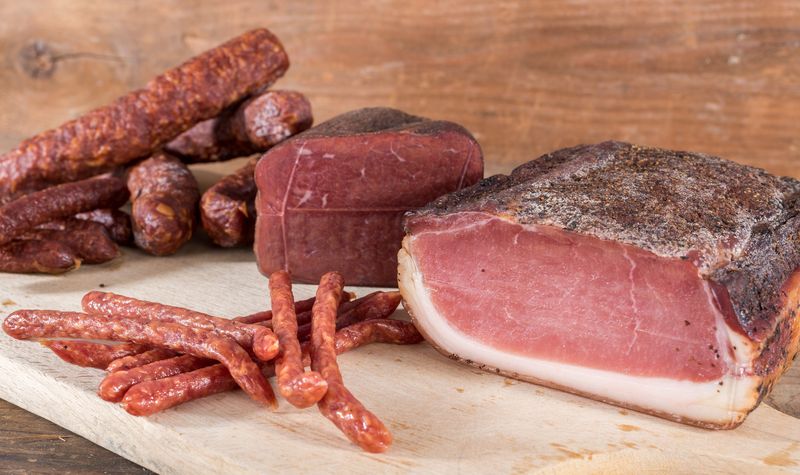
Bacon, ham, and smoked salmon might make your mouth water, but they’re sodium nightmares for babies’ developing kidneys. A single strip of bacon contains more salt than a baby should consume in an entire day! Excessive sodium forces immature kidneys into overdrive and can lead to lasting damage.
Beyond the salt overload, these meats harbor nitrates and nitrites—preservatives that can convert to nitrosamines, compounds linked to cancer risk. Smoked foods also contain polycyclic aromatic hydrocarbons from the smoking process, another potential carcinogen.
20. Certain Herbal Teas
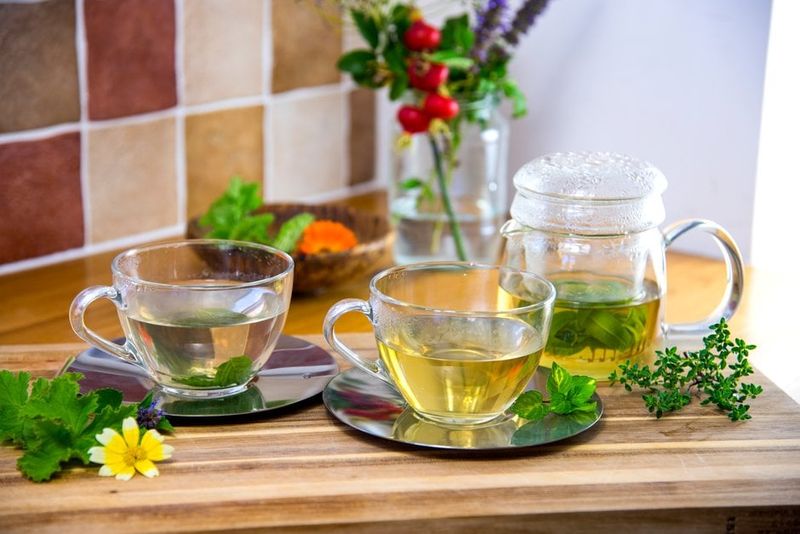
Herbal teas aren’t the innocent beverages many parents assume. Chamomile, traditionally given to “soothe” fussy babies, can trigger severe allergic reactions in infants with ragweed sensitivities. Licorice tea contains compounds that affect blood pressure and electrolyte balance in developing systems.
Star anise, a common colic remedy in some cultures, has been linked to seizures, vomiting, and jitteriness in babies. Many herbal teas contain concentrated plant compounds that haven’t been studied in infants—essentially unregulated drugs in pleasant-tasting packages.

